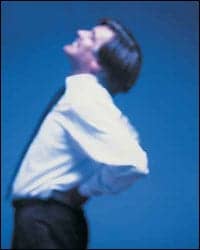Last Updated: 2008-05-23 12:00:10 -0400 (Reuters Health)
NEW YORK (Reuters Health) – Despite improvements in some technical measures of speech parameters, deep brain stimulation (DBS) of the subthalamic nucleus (STN) significantly worsens speech performance in patients with Parkinson’s disease, clinicians report in the May issue of the Journal of Neurology, Neurosurgery, and Psychiatry.
DBS has been established as an effective therapeutic option for patients with Parkinson’s disease, the authors explain, but dysarthrophonia has been reported as a significant side effect of DBS.
Dr. Fabian Klostermann from Charité-University Medicine Berlin, Berlin, Germany and associates investigated the effects of STN DBS on speech performance in 19 patients with Parkinson’s disease who had been treated for an average of 2.6 years.
Although DBS brought significant improvements in motor symptoms of Parkinson’s disease, both patients and treating physicians and speech therapists rated speech as being worse during stimulation than during the "off" state, the authors report.
The general speech impression was worse during left-sided than during right-sided DBS, the investigators say, but speech velocity was increased under unilateral left and right stimulation compared with no stimulation.
In contrast, glottic tremor was reduced by 50%, maximum phonation time and global speech rate increased significantly, and the percentage of pause time was significantly lower during stimulation.
Computerized analysis of a sustained vowel detected no significant changes in the stimulation off and on states, the researchers note,
"Although patients with Parkinson’s disease undergoing DBS of the STN will experience an overall benefit of their disease, it is important to explicitly inform therapy candidates to the possibility of speech deterioration in the course of this treatment," the investigators conclude.
"For future studies, it appears important to precisely assess the anatomical origins of dysarthrogenic DBS actions and the role of dopaminergic medication in this respect, in order to develop a therapeutic guideline for this problem," the authors add.
J Neurol Neurosurg Psychiatry 2008;79:522-529.
Copyright Reuters 2008. Click for Restrictions



